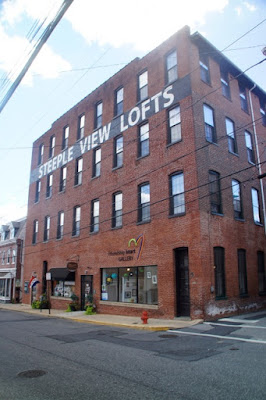| The two above photos show Lancaster Leaf Tobacco Company, one of the few tobacco companies that still exist in Lancaster County, Pennsylvania. It has two locations in Lancaster; one warehouse on Pitney Road and this huge complex on Liberty Street on the north side of the city. Lancaster Leaf was founded in 1941 and has quietly grown into the largest cigar and chewing trading company in the world. Virtually every U.S. cigar and chewing tobacco maker buys from Lancaster Leaf. It sells tobacco that it buys from Europe, Southeast Asia, Africa, South and Central America and domestic farms on the east coast of the U.S., including farms in Lancaster County. Lancaster Leaf Tobacco Co. is known as the leader in the cigar tobacco industry. The owner of the business, Harry Hitchcock, ran a division of the Winstead Co., a subsidiary of Universal Leaf Tobacco in 1927 when he purchased his first crop in Lancaster. He later started Lancaster Leaf. Today Lancaster Leaf is the world's largest trader in dark leaf tobacco. |








No comments:
Post a Comment